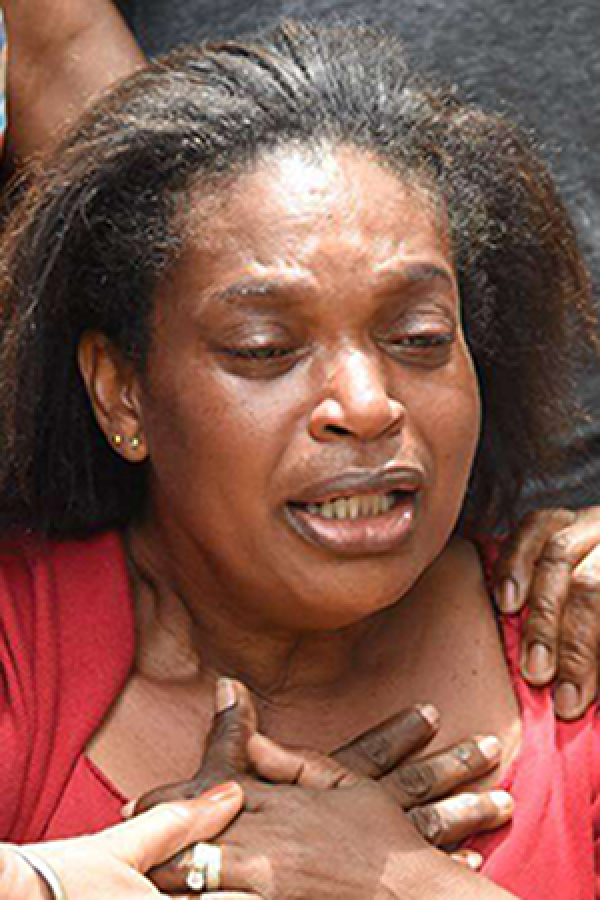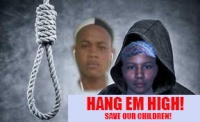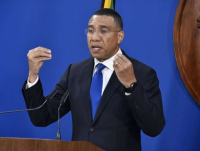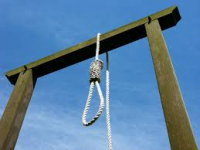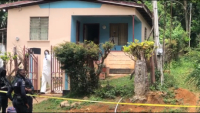“He has to pay for what he has done to my daughter and my four grandchildren,” Gwendolyn Wright McKnight said Tuesday evening, a few hours after the Office of the Director of Public Prosecutions (ODPP) said it had served a death penalty notice on Rushane Barnett.
“It will not bring them back, ennuh, but at least I will get a satisfaction... him fi die slowly, slowly, slowly, slowly; and when him a die him fi remember mi kids dem,” Wright McKnight emphasised.
Earlier, DPP Paula Llewellyn explained in a news release that her office had filed the death penalty notice on Barnett after carefully considering the allegations disclosed in the evidentiary material gathered so far, the law, and public interest in the gruesome murders.
Barnett is charged with murder in the deaths of 31-year-old Kimeisha Wright and her children Kimanda Smith, 15; Shara-Lee Smith, 10; Rafaella Smith, 5; and Kishawn Henry, 23 months old.
The five were found with their throats slashed inside their house in Coco Piece, Clarendon, last Tuesday morning, triggering shock and outrage across the country. A few hours after the bodies were found, the police named 23-year-old Barnett, otherwise called Jett or Nick, as a person of interest in the matter. He was eventually held later that night in Trelawny.
On Tuesday, when Barnett was taken before the Home Circuit Court in Kingston, DPP Paula Llewellyn explained in a news release that her office proferred a voluntary bill of indictment against him and filed the death penalty notice.
Llewellyn pointed to the provisions of section 3(1) of the Offences Against the Person Act which states that “every person who falls within section 3 (1A) shall be sentenced to imprisonment for life or to death”.
She also said that as it concerns section 3 (1A) the provisions include people who are convicted for multiple murders which arise out of the same incident.
“Section 3 (1D) of the Act prescribes that the death penalty will not be imposed unless prior notice is given to the accused person long before the trial of the matter, indicating that section 3 (1A) would be applicable on conviction for the offence of murder and a possible option in sentencing, given the circumstances of the case,” Llewellyn pointed out.
The DPP said that, in light of the provisions and a consideration of the circumstances of the case, the office deemed it appropriate for the death penalty notice to be prepared and served on Barnett at the time that the voluntary bill of indictment was laid in court.
“This is to ensure that at the earliest opportunity the accused is made aware of the intention of the prosecuting authority to make the recommendations that the death penalty is an option for the sentencing judge, consequent on a conviction after trial for the five counts of murder as outlined on the indictment,” Llewellyn stated.
The rare move by the ODPP will likely renew tensions between the State and rights advocates, as well as the European Union which, in the past, has encouraged Jamaica to end capital punishment.
The last execution in Jamaica was that of murder convict Nathan Foster in 1988.
Capital punishment has been a deeply divisive issue in the country and has some amount of public support because of the high rate of crime, particularly murder.
On November 25, 2008 parliamentarians voted by nearly 2-1 in favour of retaining the death penalty, setting off loud cheers from pro-death penalty Members and mixed responses on the streets of Kingston, including from rights advocate Dr Carolyn Gomes, who described the result as a backward step.
Gomes, who was the executive director of Jamaicans For Justice at the time, said the vote was a distraction from the real work needed to fix the nation’s crime problem.
In 2009, a moratorium placed on the death penalty was lifted; therefore, it is still legal in the Jamaica.
On Tuesday, the DPP said Barnett’s case has been set for mention on Friday, July 22, 2022 in order for legal representation to be settled for him. Additionally, outstanding reports, including a psychiatric evaluation, are to be submitted, and disclosure of all the material made to the defence.
